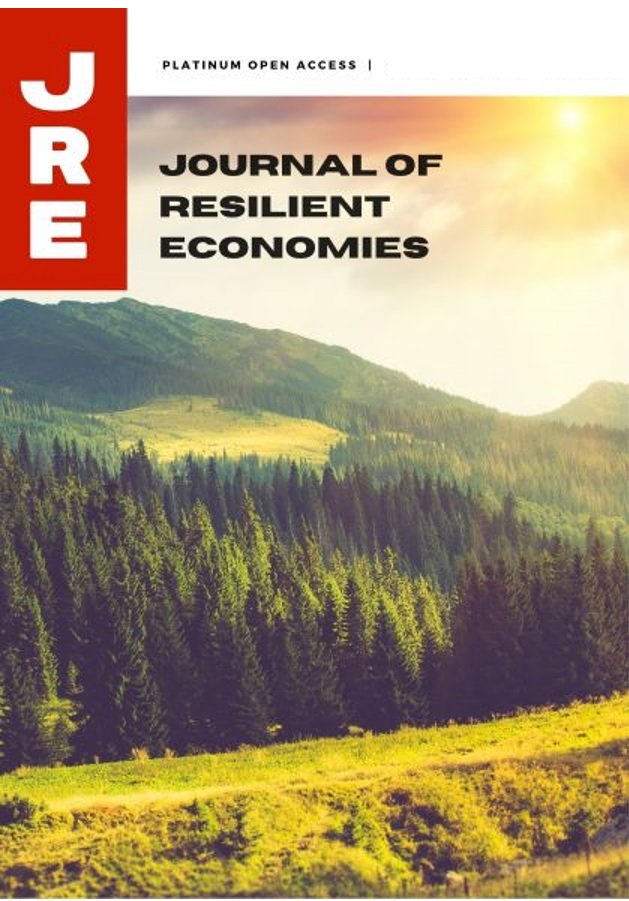Paper Development Workshops in Sustainability and Resilience

We are delighted to introduce the Paper Development Workshop in Sustainability and Resilience (PDWSR) series, which has been established in response to overwhelming demand. This series serves to complement our annual BEMAS Conference program by providing a unique avenue for in-depth discussions with distinguished CITBA researchers and editors of CITBA’s affiliated journals.
The PDWSR series is dedicated to improving and fostering interactions that are distinct from other CITBA programs. Beyond its affiliation with our conferences, the PDWSR workshops are also available as standalone events, catering to the specific needs and requests of researchers and organizations. This ensures flexibility and accessibility for participants who seek to engage with the series outside of conference contexts.
Structured in a highly interactive workshop format, the PDWSR sessions offer an opportunity for dynamic and engaged discussions. Participants will benefit from the expertise and insights of prominent figures in the fields of sustainability and resilience, making these sessions invaluable for advancing research and scholarly endeavors.
Stay connected to learn about upcoming PDWSR workshops, and join us in enriching the discourse surrounding sustainability and resilience. Together, let's explore new dimensions of research and collaborative learning
In the 21st century, our global landscape has been shaped by a series of unprecedented challenges – from natural disasters to financial crises, from pandemics to economic downturns. These crises, including events such as the Dot-Com bubble, SARS, the Global Financial Crisis, and the ongoing COVID-19 pandemic, have left lasting imprints on industries, occupations, and livelihoods. It's become evident that conventional approaches to managing external risks may fall short, particularly for economies that are more vulnerable.
Recognizing the urgency for transformative solutions that foster resilient economies, the Program on Disaster and War-affected Economies (PDWSR) has emerged. This initiative is dedicated to research and training that delve into the heart of multidisciplinary concepts, focusing on crucial themes such as:
Resilience and Sustainable Business Practices: Exploring innovative strategies that enable businesses to not only survive but thrive in times of turmoil.
Organizational Resilience and Sustainability: Unpacking the elements that equip organizations with the capacity to navigate disruption and uncertainty.
Economic Resilience at Various Levels: Analyzing how economies, from micro to macro scales, can develop the resilience needed to withstand shocks.
Industry Resilience: Investigating how different sectors can fortify themselves against adversities and evolve for sustained growth.
Regional, Urban, and Rural Resilience: Examining how diverse communities can bolster their resilience in the face of challenges, irrespective of their geographical settings.
Community Resilience and Sustainable Practices: Exploring grassroots initiatives that foster community-level adaptability and sustainability.
The PDWSR program is committed to advancing research and understanding in these areas, paving the way for innovative approaches that redefine how economies prepare for and recover from crises. By bringing together experts and practitioners from various fields, PDWSR is a catalyst for shaping a more resilient, adaptable, and sustainable global economic landscape.
The workshop is designed to achieve the following objectives:
Guiding Logical Framework Creation: Provide participants with insights into constructing a robust logical framework for their research papers, enhancing clarity and coherence.
Navigating Rejection Pitfalls: Identify potential pitfalls that may lead to paper rejections and offer strategies to circumvent them effectively.
Tackling "Zombie Nouns": Delve into the concept of "zombie nouns" and their impact on effective writing, equipping participants with techniques to invigorate their prose.
Personalized Manuscript Feedback: Offer individualized feedback on participants' manuscripts, addressing specific strengths and areas for improvement.
Peer-Review Breakout Sessions: Facilitate small group discussions for peer-review feedback, fostering collaborative learning and constructive critique.
Fostering Scholarly Networking: Cultivate an environment that encourages scholars to connect, share ideas, and establish valuable professional relationships.
Diverse Research Methods Exploration: Provide an overview of a wide array of research methods and tools, allowing participants to expand their methodological toolkit.
Matching Methods to Research Contexts: Evaluate the suitability of different research methods for distinct research contexts, empowering participants to make informed choices.
By pursuing these objectives, the workshop aims to empower participants with essential skills and insights, ultimately enhancing the quality and impact of their research contributions
he workshops are tailored for PhD students and academics, including Early Career Researchers, who are eager to cultivate their expertise in crafting both conceptual and empirical research. These workshops are particularly beneficial for those committed to advancing our comprehension of the multifaceted roles, dynamics, and far-reaching influences of various economic sectors (including public, private, and social entities) in fostering enduring, sustainable, and resilient societal and economic values.
The objective of these workshops is to establish a dynamic platform where researchers, scholars, and practitioners can collaborate by sharing their ideas and obtaining valuable feedback on their endeavors within the realm of sustainability and resilience. These workshops are inclusive, welcoming both CITBA members and non-members, and come at no cost. Nonetheless, owing to the interactive nature of the sessions, the maximum number of accepted papers for each workshop will be limited to six.
Participants are expected to submit an extended abstract, structured akin to a full paper—complete with sections like Introduction, Methods, Data, Discussion, and more. The abstract should span 2500 to 3000 words (excluding references and appendices). Submissions will undergo review and selection based on their potential to provide significant and innovative theoretical contributions to the sphere of sustainability and resilience.
Throughout the workshop, attendees will enjoy the opportunity to present their papers, gain insights from editors and members of the editorial board, participate in roundtable discussions, and engage in small group review and methods discussion sessions.
Bonus Feature: Authors who adhere to the guidelines and receive favorable feedback will receive an invitation to submit their final work to the Journal of Resilient Economies, with the potential for publication. The ultimate papers will be subjected to a rigorous double-blind peer-review process.
The Paper Development Workshop in Sustainability and Resilience (PDWSR) is offered free of charge and receives comprehensive backing from the Centre of International Trade and Business in Asia (CITBA) and the College of Business, Law, and Governance at James Cook University, Australia.
In recognition of outstanding contributions, we are pleased to announce that two certificates will be conferred—one for the best full paper and another for the best developmental paper. The recipients of these awards will also be granted a one-year membership as a CITBA Research Fellow.
The workshops are organised up to three times annually. However, given the deeply interactive nature of these workshops, we are constrained by the number of available seats for each workshop. To be considered for participation, kindly submit your short (minimum 500 words) or extended abstract (ranging between 2,500 and 3,000 words) A/Prof Taha Chaiechi ( email: CITBA@jcu.edu.au ). As slots are limited, decisions will be made based on the quality of the submitted abstract.

Journal of Resilient Economies (JRE) is a proud partner of the PDWSR series. JRE is a Platinum Open Access journal, which means JRE does not charge either the readers or the authors. This ensures all accepted articles will be immediately and permanently available to readers free of charge.
Publication infrastructure and maintenance of JRE is fully supported by James Cook University Open Journal Systems (OJS), driven by the belief that knowledge has the power to change lives, and that research outputs should be freely accessible online, without barriers. James Cook University is one of the world's leading institutions focusing on the tropics, located in tropical North Queensland, Australia.